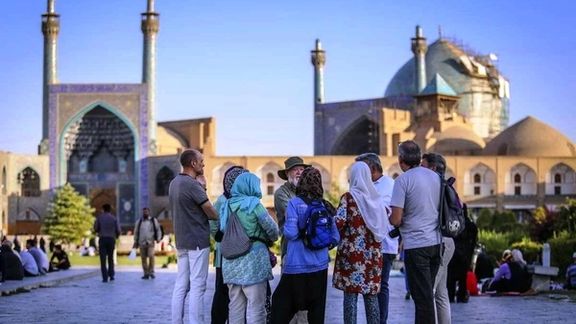Iran Tourism Official Mocks Exaggerated Tourism Growth Figures

A tourism industry representative in Iran has accused the government of providing false statistics on the growth of foreign tourism.

A tourism industry representative in Iran has accused the government of providing false statistics on the growth of foreign tourism.
In an interview Hormatollah Rafi'ee quipped, "We are professionals in [ producingfalse] statistics," referring to the government.
He went on to express concerns about the country's inability to capitalize on tourism opportunities. He revealed that despite growth claimed by officials, the number of incoming tourists has in fact declined in recent years. This revelation raises questions about the accuracy of previous reports and the underlying challenges faced by Iran's tourism sector.
Last year, the government claimed the number of foreign visitors increased by 132 percent reaching 4.2 million people, amid the lingering COVID pandemic, which surprised many.
For years, Iran has been a destination of interest, enticing foreign visitors with its historical heritage. Even with strict dress codes for women and restrictions on alcohol and nightlife after the 1979 Islamic Revolution, a small but steady stream of mainly European tourists continued to visit the country.
Hopes for a significant boost in tourism arose when Iran and major powers reached a landmark nuclear deal in 2015.
However, these hopes were shattered when then-US President Donald Trump unilaterally withdrew from the agreement three years later, triggering a downturn in tourism prospects.
Last year, the country witnessed mass protests and detained more Europeans prompting several Western countries to issue travel advisories warning their citizens against visiting the country, citing the risk of "arbitrary detention."